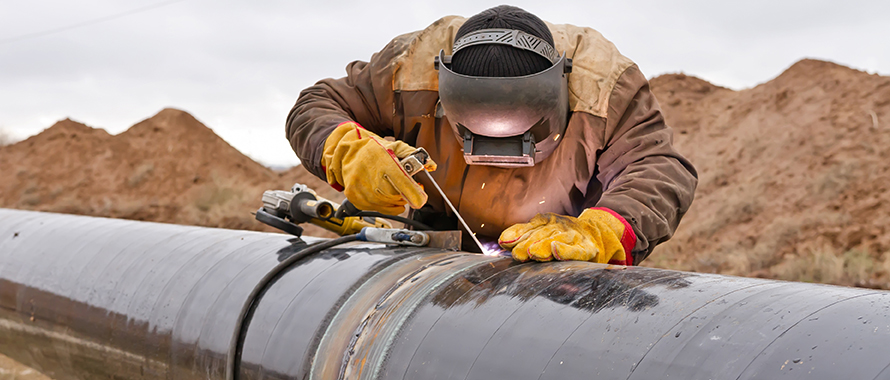The oil and natural gas industry represents 65 percent of energy consumption, supporting 9.8 million jobs.1 While the employment stats are staggering, not all of those employees physically work with oil and gas.
“In looking at potential clients in the oil and gas sector, service companies that support the industry giants are the place for brokers and agents to start,” said Aaron Carfagnini, National Product Leader, Environmental Centre of Excellence, Burns & Wilcox Canada. “Contractors that are working to set-up a new facility or maintain oil and gas equipment generally turn to their broker for Limited Pollution and Professional Liability to be added to their Commercial General Liability (CGL) coverage.”
Many contractors ask why they need pollution coverage if they do not physically handle oil and gas. According to Gina Jones, Associate Vice President, Environmental Programs, Burns & Wilcox, every contractor – no matter the industry – should have Contractors Pollution Liability (CPL) coverage or a pollution endorsement on the CGL.
Why do service providers and contractors need it?
“All oil and gas companies require a service provider or contractor to acquire environmental pollution policies,” said Carfagnini.
A pollution endorsement on a CGL covers business interruption and environmental damage and cleanup during the course of work on a third party site. Carfagnini explains that this coverage is most popular with service providers to the oil and gas industry and not oil and gas companies themselves.
“Due to the fact that many of the small oil and gas contractors have small revenues comparatively to the large oil firms, an oil and gas insurance market may not even look at insuring them,” said Carfagnini. “Brokers should look to specialty markets for pollution expertise.”
What kind of service companies and contractors need it?
Frankie Reed, Senior Broker, Environmental Center of Excellence, Burns & Wilcox, says she sees a wide variety of submissions for pollution coverage. “Contractors, such as ones who clear the land for oil and gas fields, need CPL because standard carriers will add exclusions to make sure that they are not involved in any drilling activities,” says Reed.
Other types of services providers who need pollution coverage to support the oil and gas industry include:
- Pipeline inspectors
- Salt water or bi-product disposal firms
- Commercial truckers hauling product or waste such as salt water
- Caterers on work camp-sites
- Welder, electricians, carpenters, and more
While claims are relatively low, contractors should consider carrying pollution endorsements. Jones described one independent truck hauler in the Midwest that decided not to continue carrying Transportation Pollution Liability because he was carrying the waste water from an oil and gas facility. Six weeks following his cancellation of the policy, the truck turned over in a ditch and caused a $10,000 loss to clean up the ditch. While the sum may not seem like a lot of money, it is to an independent contractor and could have been avoided if his pollution policy was renewed.
Starting with a project-basis policy
“When a smaller contractor is looking to get their foot in the door at an oil and gas company, they may request a project-based policy with dedicated limits,” said Carfagnini. “Usually these contractors have not seen the requirement before, such as a commercial electrician that wants to respond to an oil and gas RFP.”
The price differences between an annual and a project-based policy are minimal. Since pollution policies are based on revenues, the company would pay a similar price for a project policy as it would for all of their operations.
“It is important to point out that the insured will have a risk for pollution exposure on all of their projects, not just oil and gas,” says Jones. “It would make sense to cover all of the operations no matter what.”
As with all specialty insurance, conversations need to start early with clients. It is key to find a trusted environmental underwriter who has spent years working in the field and knows how to navigate the intricacies. Brokers and agents should understand the types of projects service providers are bidding on to insure them properly, as an insured may decide to dabble on a new type of project that may not be covered.
“If an electrician is wiring in a school or office building, the potential for pollution is much lower than if they start doing electrical on a pipeline valve and it goes awry,” said Carfagnini.
References
- Energy Tomorrow, US




